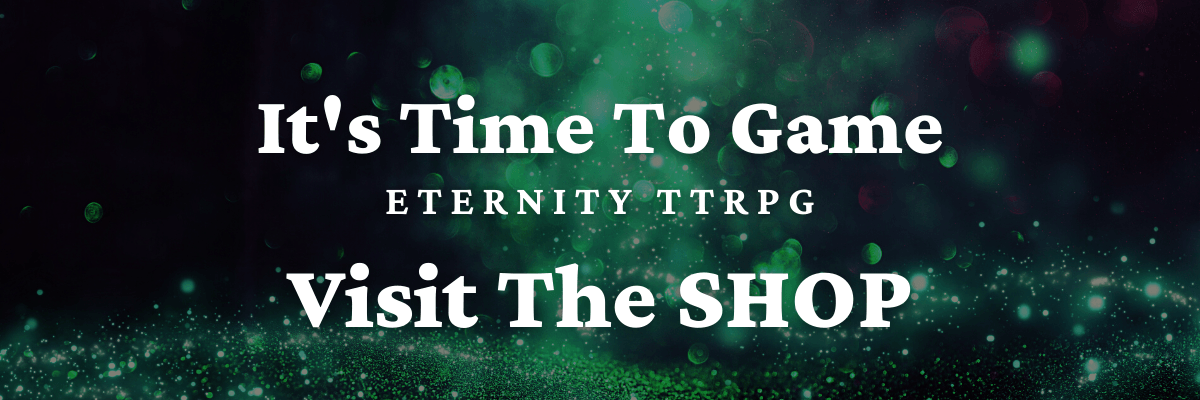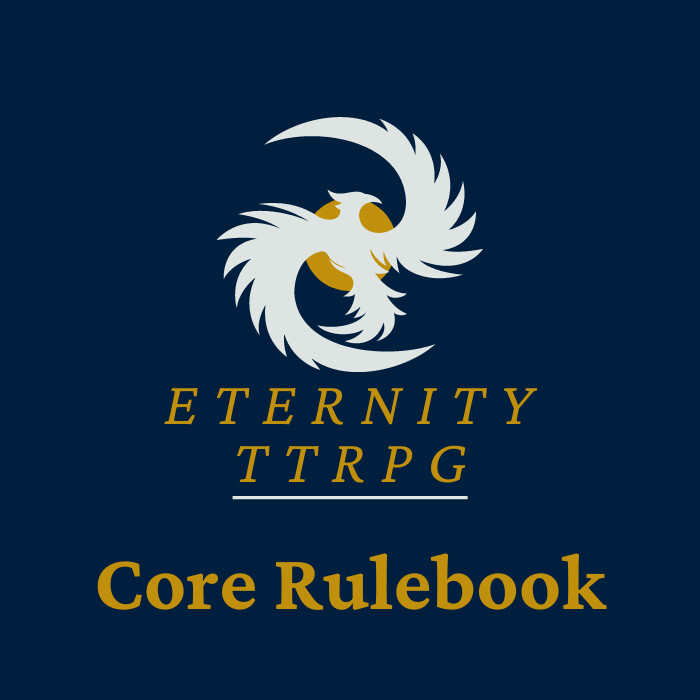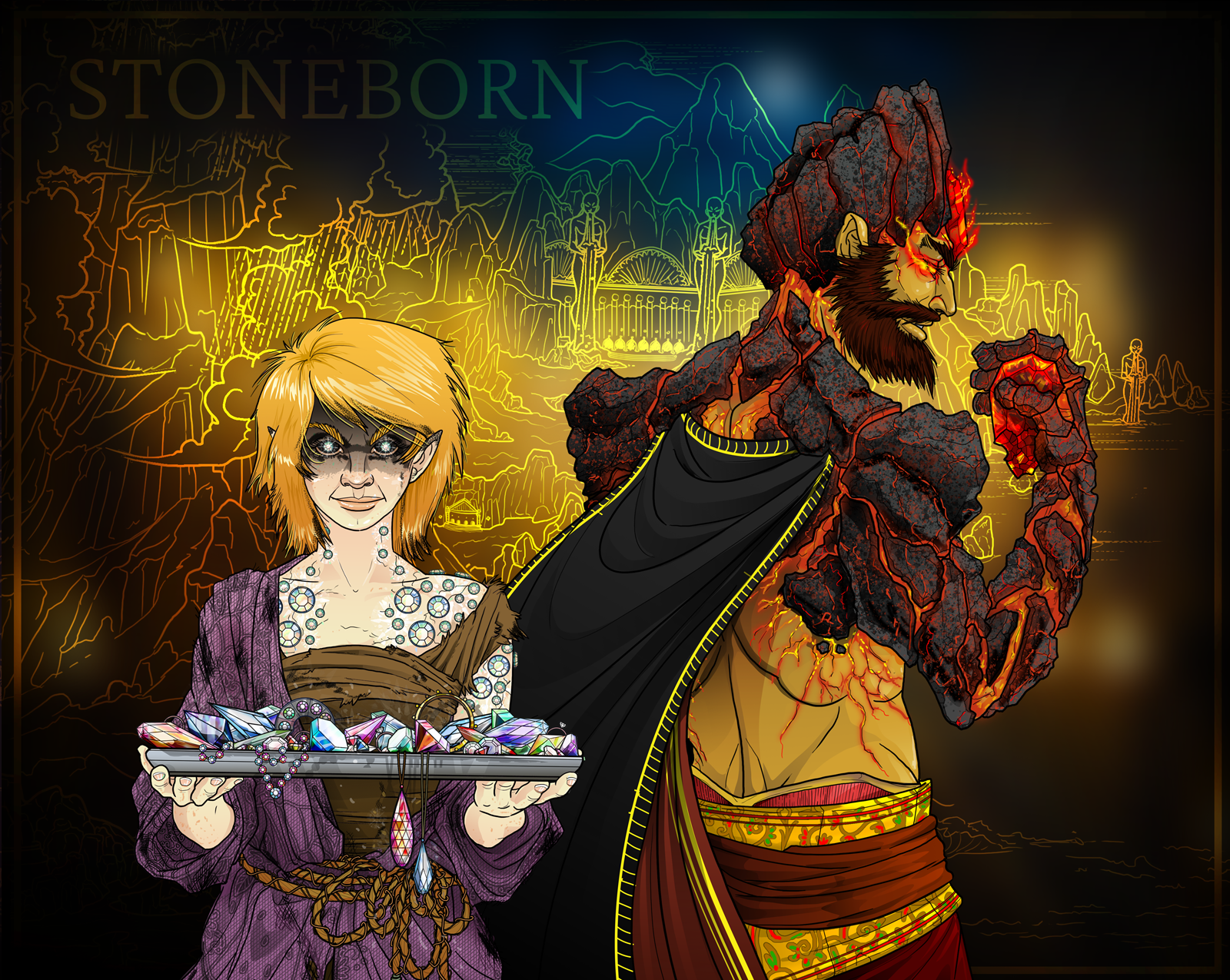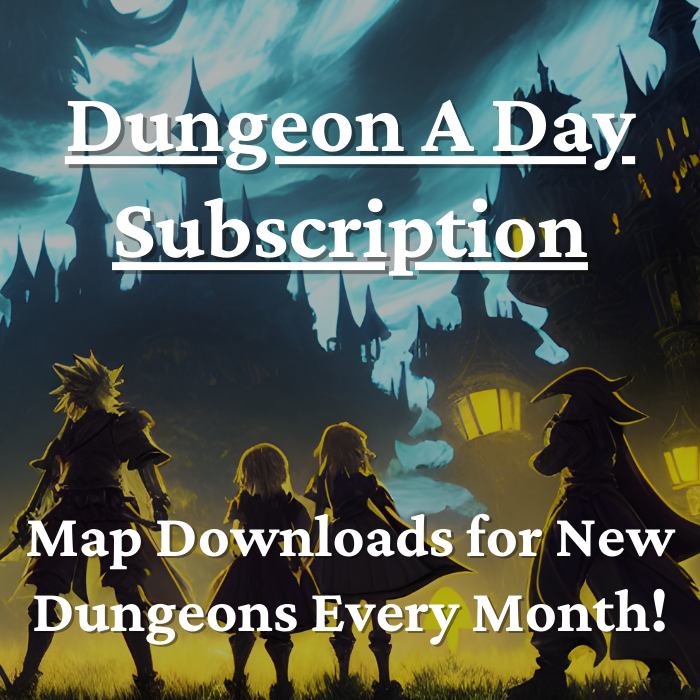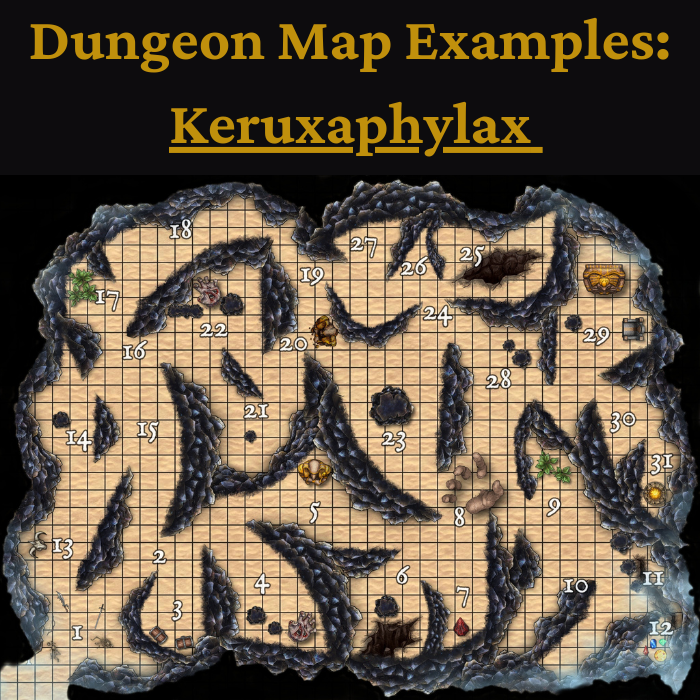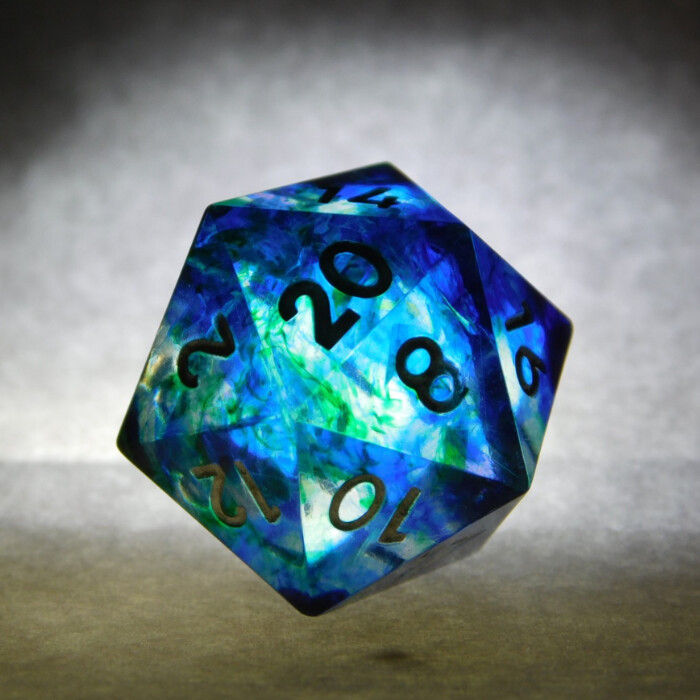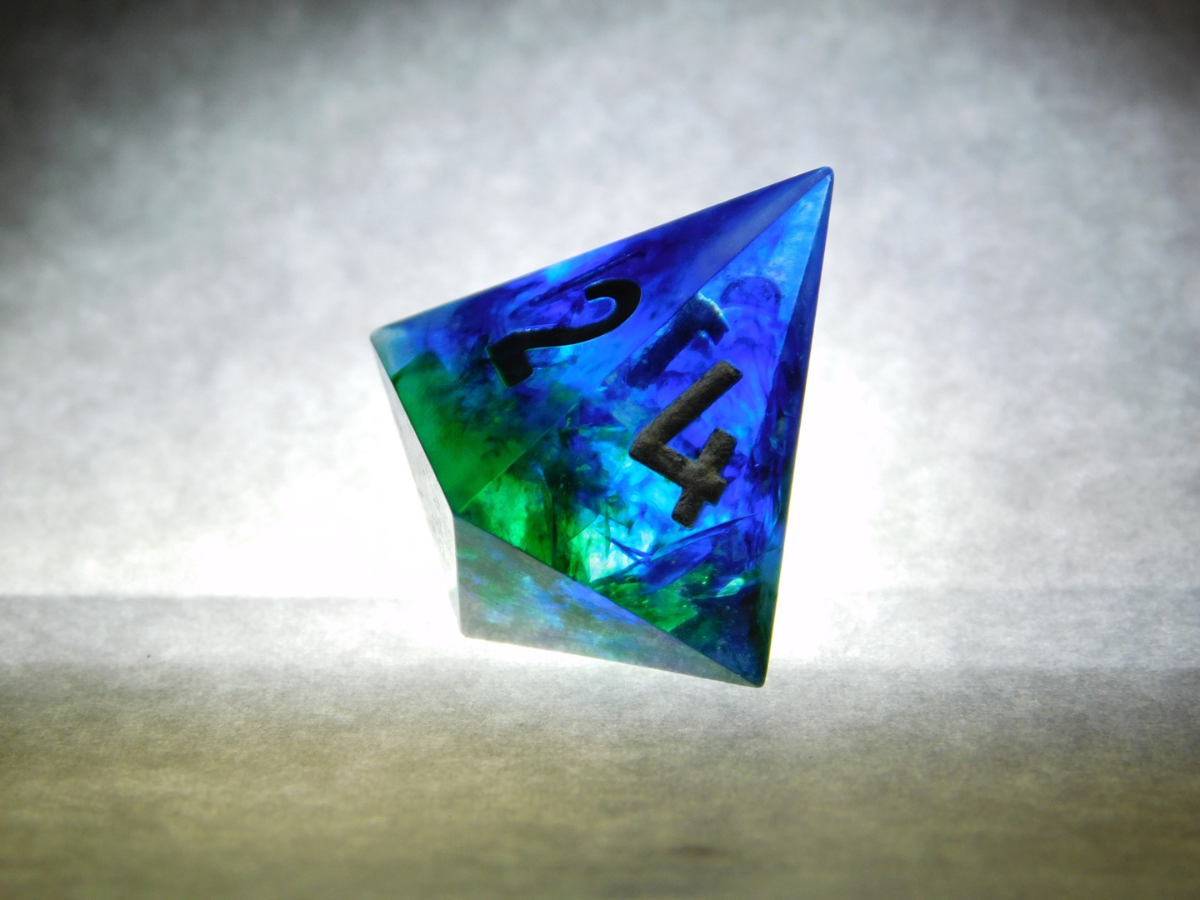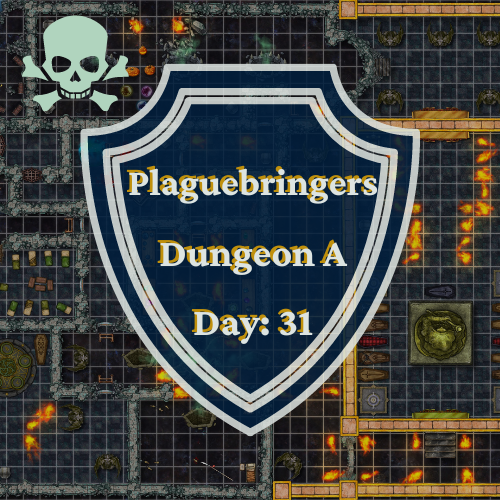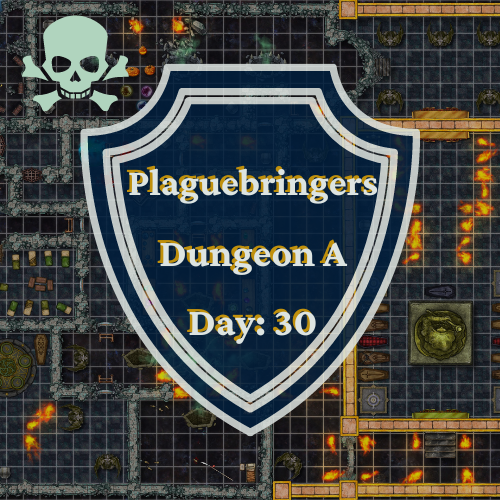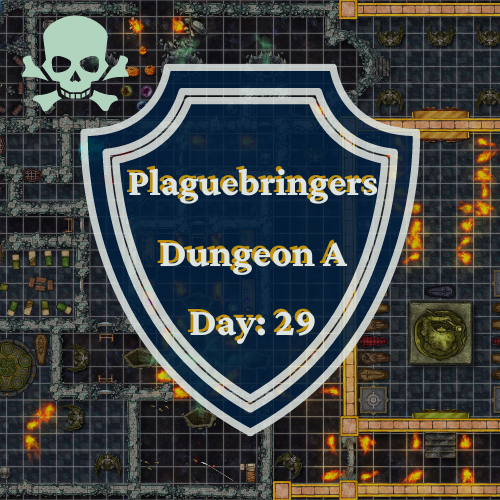How to Start A DnD Campaign
Curious on how to get your very own DnD campaign rolling? Well, it's probably simpler than you might think.
Dragons and Dungeons, also called D&D by official rulebooks – or DnD by fans – is a fantasy role-playing game that has been around for over 40 years. It was developed and designed by Gary Gygax and Dave Arneson, who are largely considered the grandfathers of the modern day TTPRG genre. DnD has been enjoyed by millions of people all over the world and continues to grow in popularity.
So, how to start a DnD campaign, you ask?
Currently, DnD is in its 5th edition, and the most recent version was released in 2014. If you’ve ever wanted to try playing DnD, or are already an avid player and finally want to try your hand at being the dungeon master (DM for short), I’ve made this guide specifically with you in mind.
There’s a lot that goes into starting an ongoing RPG campaign, and many new players and DMs find it overwhelming. Proper preparation goes a long way to making a great campaign, and keeps the process from becoming too complicated or confusing.
As the DM, you’re responsible for creating and running the game’s world, guiding players through their adventures, and making sure everyone is both having fun and following the rules. I know it seems like a lot, but I’ll go over everything you need to know to get started.
I’ll focus on how to plan and start a DnD campaign, with practical steps and valuable tips I’ve picked up along the way.
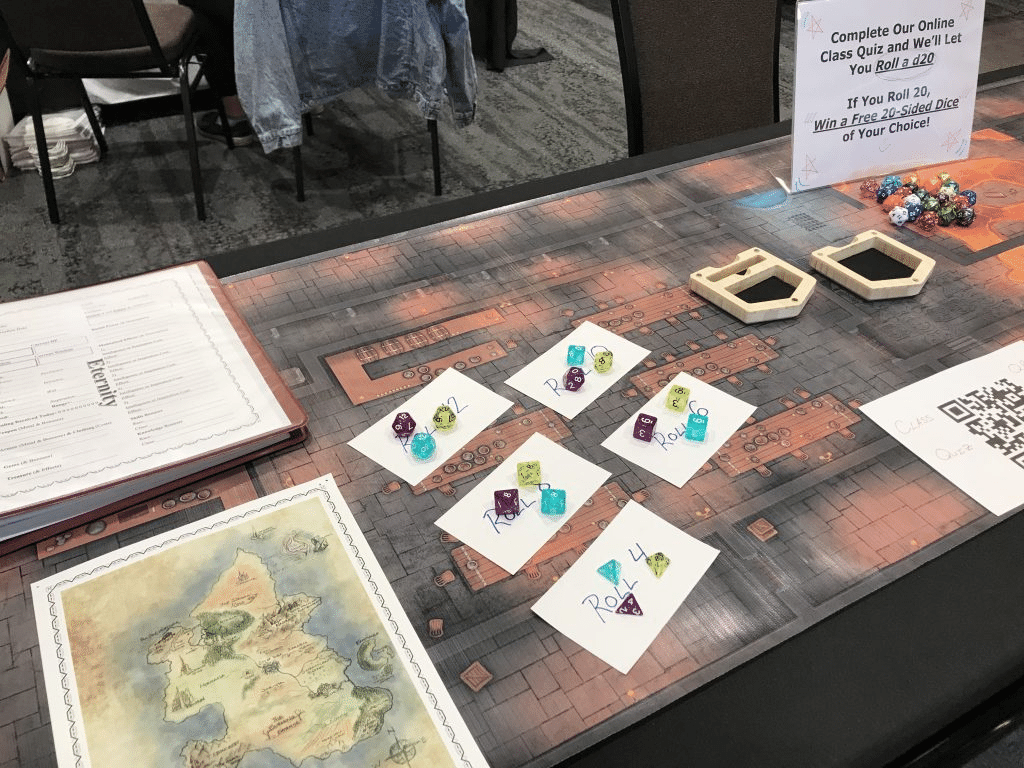
How to Start a DnD Campaign – From the Beginning
Before starting your campaign there are a few things you need to think about. We’re talking about establishing groundwork before you even get too far into world building and game planning. These relatively boring but highly necessary practical steps help ensure that sure you and your players are on the same page, and can enjoy your game sessions to the fullest.
You would be amazed at how many terrific games fall apart for “normal life reasons.” For this reason, make sure you hit these mundane but critical steps, before committing to anything huge!
Communicate With Your Players
The first and most important thing you need to do is talk to your players. Find out what they’re looking for in a campaign. Do they want a fast-paced adventure with a lot of combat, or a slow-burn mystery with a plot twist at the end? A lot of times players don’t have a preference, and you get to go with whatever you’ve been wanting to experiment with, as a DM.
It’s also a good idea to be aware of how experienced the players in your party are with DnD. Do you have players that have been at it for years, or are most of your players brand new? Are they going to be roleplaying fully in character, or do they mostly prefer power gaming?Get a feel for what they’re looking for and use that info to help you plan your campaign.
Of course, you don’t have to give your players everything they want. If you want to run a certain type of campaign, make that clear from the beginning. It’s better to have a storyline or campaign arc that you’re excited about and can make interesting than to choose a campaign based on your party’s suggestions and hate it.
Consider your group’s input along with your own hopes for the campaign when planning your adventure. Communicate clearly with everyone so you’re on the same page and can run a game that everyone will enjoy.
Determine Session Length and Frequency
Another thing to consider for how to start a DnD campaign with your group is to plan out how long and how often you want to meet up and play. DnD campaigns can last for weeks, months, or even years. Similarly, individual game sessions can last for an hour, four hours, or even (as in the case of our mega dungeon, above), about twelve hours at a time.
I’ve been in groups that meet once a week for two to three hours, and groups that meet once or twice a month for longer sessions on the weekend. Every party and campaign is different, so collaborate with the other players in your group and figure out a schedule that works best for you.
The most important thing is to be realistic about how much time you have to dedicate to your campaign. If you only have a few hours every now and then, that is perfectly fine. Or, if you want a hardcore group of gamers that play for hours every weekend, that’s perfectly doable as well. Just make sure your players are aware of your preferences, and the group’s availability, so they know what to expect.
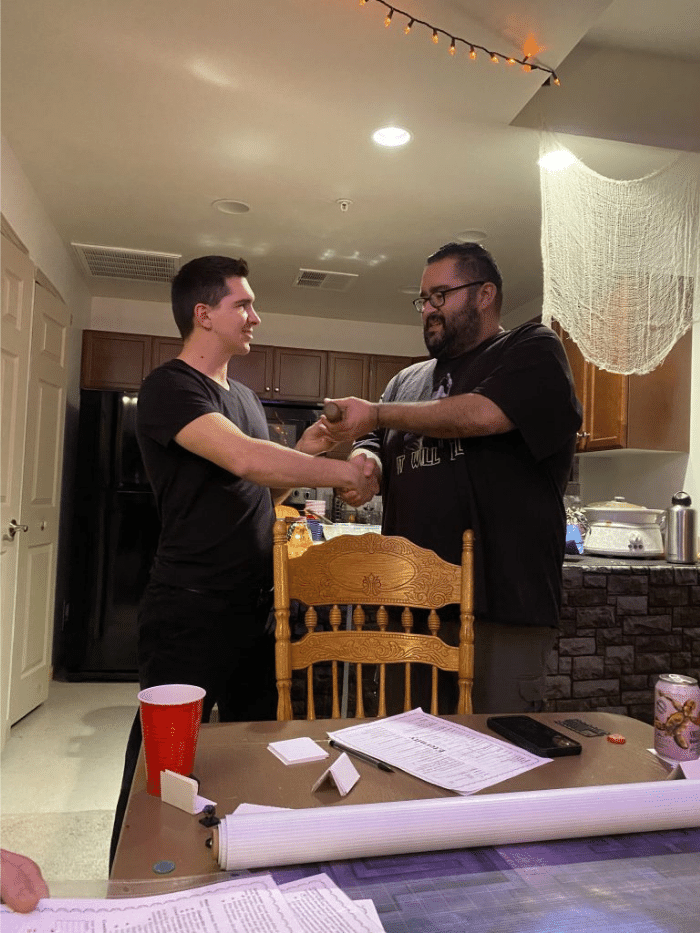
Plan Your Campaign
Now that you have an idea of what your players are looking for in the campaign and how often you’ll meet, it’s time to start planning the details of your actual campaign.
The first step is to come up with a general idea of what you want your campaign to be about. Do you want to run a prewritten adventure or create your own? (If you need some DnD quest ideas for your game, by the way, we’ve got you covered). Are you looking for something light-hearted, or dark and gritty? Once you have a basic idea, you can start fleshing out the game’s story.
If you chose a prewritten adventure, read through the whole book and take note of any plot points or NPCs (non-playable characters) that you want to highlight. You can also change details or add interesting elements to better suit what you have in mind.
If you are creating your own campaign, start by brainstorming a few key events, NPCs, and a beginning location. It’s also a really nice touch to pick out a soundtrack that you can plan to play in the background, or during certain encounters. YouTube and Spotify have exactly what you’re looking for.
New to Dungeon Mastering?
If you haven’t before run a DnD campaign, when it comes to adventures, and the “what do I actually do during the game” type of thoughts, it might be helpful to start with a prewritten adventure. They give you a good idea of how to structure your sessions and overall campaign, and help you get a feel for what’s involved in running a campaign that people will rave about.
From there, you can start putting together a more detailed outline of your campaign. This is where you decide what quests the players’ characters will go on, what NPCs (non-playable characters) they’ll meet, and what challenges and combat they’ll face.
Bottom line: it can be really helpful to take a prewritten adventure for a starting point, then use your own creativity to come up with extended plotlines for each important element in the story.
If you are new to DMing, it can also be very helpful to talk to another DM about their experiences. People who have been doing it for a while can often help you avoid all kinds of pitfalls with your gaming group. For more help you can also check out our expansive article on dungeon master tools, which provides a great overview of everything you might need to make your campaign fun and successful.
In the case that you don’t have enough people for a full party — the recommended number is four to six — you can find additional players by getting in touch with your local game store, joining a D&D Discord server, and asking around for people in your area, or introducing a friend that has never played before to the game.
Game Consistency
One final note for how to start a DnD campaign – from the very fundamentals of the topic – is to always, always, always be consistent. This is particularly true for session length and frequency, so people can expect how much time to set aside to game.
However, it’s also true for every other aspect of the game. Think about things like:
- Genre (don’t mix genres, in-game)
- Storytelling methods (your own personal DM “style” and game vibe)
- Use of music
- Snacks available at the game
- And even things like gaming environment (it can be really useful to have the game always hosted at one person’s residence, instead of always moving things around)
Consistency is one of the keys for making a campaign run the distance. It takes individual gaming sessions and turns them into a series of adventures that you’ll end up talking about with your friends for the rest of your lives.
If you haven’t looked at getting a DnD campaign planner yet, by the way, they are an excellent resource for helping you manage your ongoing game. They also help you stay consistent with small details in the story.
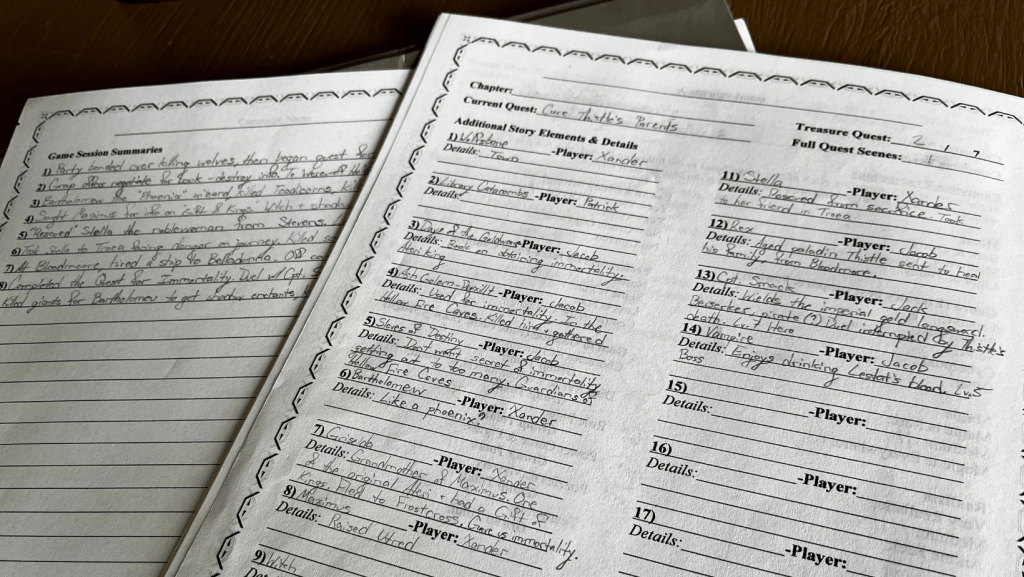
Elements of a Good Campaign
Now that you have a basic outline of your campaign, it’s time to start filling in the details. Here are a few things to keep in mind as you work out the in-depth steps of how to start a DnD campaign for your group:
Establish a Clear Goal/ Story
Your campaign should have an overarching goal/ storyline that your players know about (or at least think they know about). When players know what the campaign is “about,” it keep them interested, and ensures they’re able to create a general plan for how to advance the plot. Remember though that keeping players in the dark about some interesting plot twists is a good way to create drama and tension in the story that your players want to resolve.
Create Interesting NPCs
Your NPCs (non-playable characters) should be more than just talking heads. No one likes personality-less, static, nobodies.
Instead, your NPCs should be fully fleshed out characters with complex motivations and goals. The more interesting your NPCs are, the more invested your players will be in your campaign. Some prewritten adventures only have a few canned lines for NPCs, so don’t be afraid to improvise during conversations and make things more real.
You don’t need to go overboard with your NPCs, creating vast background stories, or immensely complex motivations, either. Simply give them a real feel to them, and as your campaign grows, so too will your NPC depth.
Balance Challenges
Your players should feel like they’re accomplishing something when they overcome an enemy or find a new item. If the challenges are too easy though, they will get bored. Too hard, they’ll get frustrated.
This sense of balance is especially true for combat. You don’t want your players to win after just a round or two of fighting, but you also don’t want them to die — especially if they’re new. Strike a balance and make sure everyone has fun.
As a note on what’s known as “TPK DnD” (where everyone in your gaming group dies), there are lots of ways to make stories from bad in-game events. Read my article on it if you want more info on that particular subject.
Build a Realistic World
Your campaign should take place in a realistic world. By that, I mean detailed and complex, not “true to reality” – we are talking about a fantasy world, after all.
Sure, there will be unbelievable and fantastic characters, dragons, elves, orcs, and magic, but your players should be able to appreciate the sense of reality in the world as a whole, and enjoy exploring it. Games become “weird” when the sense of reality and expectations gets too far out of whack.
There’s a balance to exploring the sense of wonder, magic, and majesty that DnD offers, while still keeping things grounded by a healthy bridge to reality.

Start a New DnD Campaign
Now that you have the basics of a good campaign, let me walk you through actually starting one. Most campaigns have a general outline.
Step 1: Choose a Starting Point
The first step is to choose a starting point for your campaign. This can be anything from a prewritten adventure to a simple idea that you came up with yourself. If you are new to being a dungeon master, it might be helpful to start with something prewritten and already fleshed out. Pre-written adventures give you a good idea of how to structure your campaign and help you get a feel for what is involved. After that, the process of creating adventures is typically fairly simple.
There are a few things to keep in mind when choosing a starting point for your campaign.
Appropriately-Leveled Characters
Make sure that the starting point is appropriate for the level of your party. If you are starting with a prewritten adventure, it should tell you what level each character needs to be at so you can plan accordingly. However, if you are making your own adventure, make sure that the difficulty is appropriate for the level of your players.
If you have a mix of experienced and new players, you’ll either need to have everyone create new level one characters or let the experienced players use old characters and have the new players create and level up their characters. The goal is to have everyone at the same level as running game sessions with characters that range in level adds to the difficulty.
Starting Point that Matches Your Story
The starting point should also be appropriate for the type of campaign you want to run. If you want to run a campaign that's mostly combat-focused, then make sure the starting point sets up the story and explains why there is so much animosity toward your party. Basically, just make sure the starting point makes sense for the campaign.
How Much Time Do You Have to Prepare?
You should also consider the amount of time you have to prepare for your campaign. If you’re short on time, it might be better to start with a prewritten adventure. You can simply read through the adventure and be ready to go without having to spend a lot of time preparing your own material.
If you do plan to create your own gaming sessions and stories, just know that in general, the more time you can put into preparation and planning, the better your game will turn out. For example, it's not uncommon for me to put 1hour of preparation into a 3-4 hour game. However, I'm also a very experienced dungeon master. If you're new, it might take you more time than that.
Step 2: Pre-Campaign Gaming Session
Once you have chosen a starting point, the next step is to have a game session that's entirely designed to prepare for the campaign.
This is a meeting with your players to briefly discuss the campaign and make sure that everyone is on the same page for meeting times and the campaign’s expected duration. This is also a good time for new players to create characters and for you to familiarize yourself with the player characters’ specs, races, and classes.
This is not a required step, but it does make your first real session go a lot smoother.
What to Cover In Your Pre-Campaign Gaming Session
Here are the basic things you should cover in your intro session:
- Discuss the type of campaign you'll be running. Make sure that everyone is aware of the type of game you will be playing.
- Go over the rules with your players. This is especially important if you are new to DMing or if your players are new to D&D. Make sure that everyone knows the basics of how to play the game. If you have a mix of experienced and inexperienced players, keep the new players until the end so they can learn in more detail without the more seasoned players getting bored or wasting their time.
- Important rules to touch on include combat rules, dice rolling, how stats are compiled and what they affect, and how to perform spells and cantrips.
- Have your players create their characters. It’s up to you whether you want everyone to make new characters, or if they can use an old character they’ve played with before. Creating a good, well-rounded character can be confusing, so you may need to walk through the steps of character creation with new players.
- You and your players get to decide how detailed characters are going to be. Some players only include basics like name, race, class, and ability scores, while others like to include a complicated backstory, alignment, and maybe even a custom item or two that’s tied to their backstory.
- It's also very important to discuss the level of commitment that you expect from your players. Some campaigns require more time and effort than others, so it's crucial to make sure that everyone's on the same page, if you want your campaign to last.
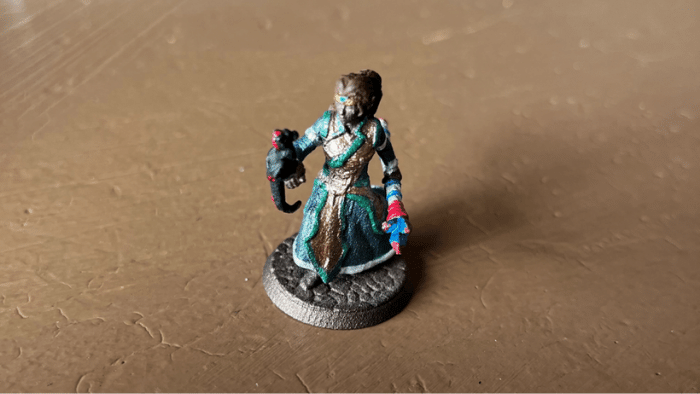
Step 3: Plot Hooks
The next step is to come up with plot hooks for your campaign. A plot hook is simply a way to get your players interested in the story. It can be anything from a mysterious artifact that needs to be retrieved to a villain that needs to be stopped.
There are a few ways to come up with plot hooks. The first is to look at your setting and see what could be happening in the game's world. For example, if you’re running a campaign set in a medieval city, you might have a plot hook involving a group of bandits or a dragon terrorizing the city. Another way to come up with plot hooks is to think about what kind of story you want to tell. If you want to tell a story about betrayal, for example, you might have a plot hook involving one of the player characters being betrayed by someone they trust.
Once you have a few ideas for plot hooks, the next step is to start fleshing them out. Decide what the goal of the plot hook is and what needs to happen for the players to accomplish it.
Step 4: Prepare Encounters
Step four is to start prepare basic encounters. An encounter is simply any situation that the players have to deal with which may involve some degree of difficulty or creative problem-solving. This can be a group of monsters they have to fight, a puzzle they need to solve, or an immersive roleplay experience with an NPC (non-playable character).
When preparing encounters, it’s important to think about what the players are supposed to accomplish. What is the goal of the encounter and what do the players need to do to complete it?
It’s also important to think about the difficulty of the encounter. It should be challenging, but by no means impossible. Like everything else, you want it to be interesting and take work, but still be enjoyable for the players.
The best way to determine the difficulty of an encounter is to use the Challenge Rating, or CR, of the monsters/enemies in the encounter. The CR is a number that combines the creature’s special abilities, hit points, and species. The higher the CR, the more difficult the encounter will be. CR for monsters is easily found in the D&D Monster Manual, whereas other forms of encounter CR can often be found in the D&D Dungeon Master's Guide.
You can use this system to balance encounters so they aren’t too easy or too difficult. Compare the CR to the party’s average level, and use your best judgment to decide how difficult it should be. It takes some practice to learn how to do this well, so take advantage of some online guides for help.
Once you’ve determined the difficulty of the encounter, you can start preparing for it. This means deciding what monsters or NPCs will be involved, and their individual stats.
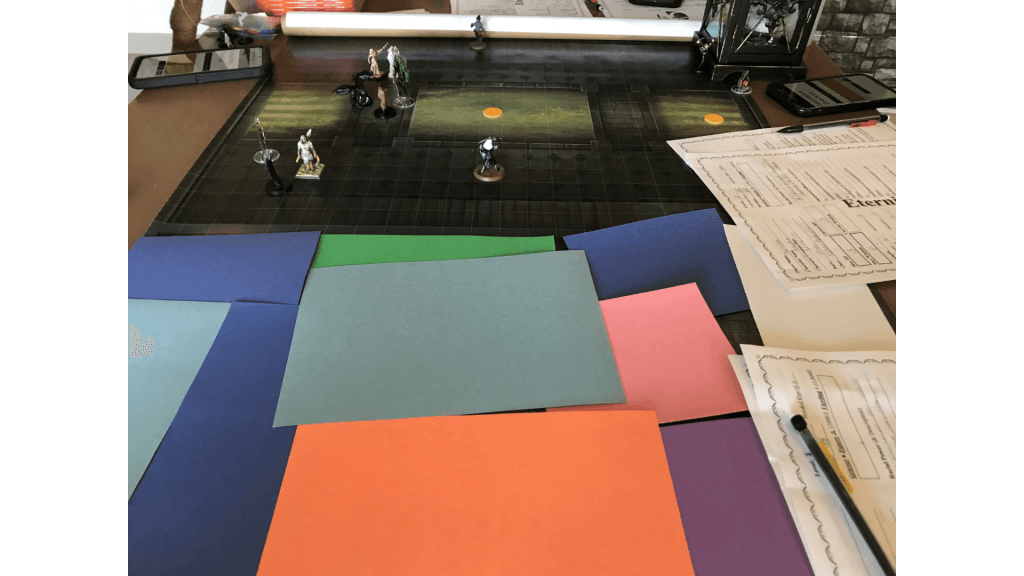
Step 5: Opening the Campaign
Here’s the best part! The final step is to actually start the campaign. Do so with a grand opening scene. Make it as exciting, dynamic, and magical as possible. Doing so will set the tone for the rest of the campaign.
Here's are a few ideas for that first entrance into your gaming world:
The Council
This is a great way to start a campaign if you want to introduce the players to the gaming world right away. They can all be members of a council that is discussing events in the gaming world. This is also a good way to get the players to start thinking about their characters and how they imagine themselves fitting into the world.
The Rescue
This is another great way to start a campaign and is pretty common. You can have the players be part of a rescue team that is sent to save someone from a dangerous situation. One of my favorite rescue campaigns was going to save an NPC that had been captured by a dragon. We had some incredible combat situations, let me tell you.
The Attack
This is a great way to start a campaign if you have players who are itching to start combat right away (and many gamers are). You can have their first mission be to attack an enemy stronghold. Or, you can send them on a more mundane mission, and get ambushed on the way. This can get them interested and excited about the campaign from the get-go.
The Journey
This is a great way to start a campaign if you want to focus on the characters’ journey. You can have them start in their hometown and then set out on a long journey to reach their destination. This allows you to introduce the players to the gaming world, and gives the player's characters time to develop bonds with one other.
The Heist
This is a great way to start a campaign if you want to focus on getting the players to work together. You can have them plan and execute a heist, which is always very exciting. This allows them to use not only their class skills and abilities to complete the mission, but also their ingenuity, as they think through creative ways to sneak past guards, grab the artifact, and make a clean escape.
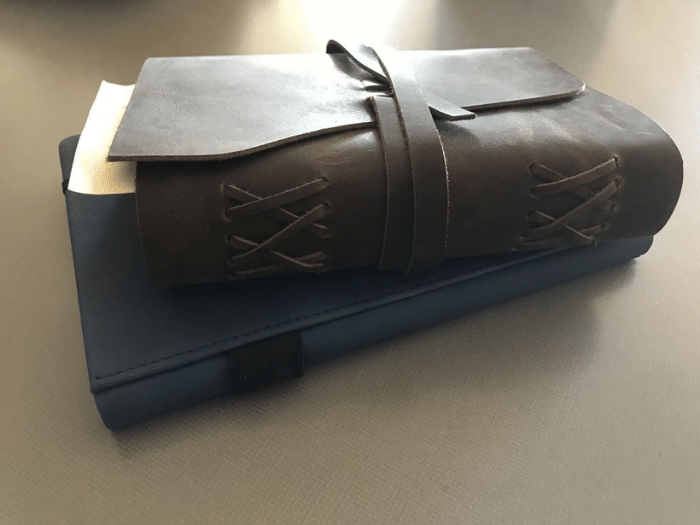
Final Tips for Running a Successful Campaign
As dungeon master for your group, you have a lot of responsibility on your shoulders. Not only do you have to come up with an engaging story, but you also have to keep track of all the different mechanics and rules of the game. It doesn’t have to be overwhelming — the most important thing is to have fun with the people in your campaign.
Here's a few final tips to keep the focus on the game's story, and having fun:
Be Prepared
This is the most important tip for running a successful campaign. You need to be prepared for everything. This means having all of your materials ready and having a plan for what you want to do, in-session.
Be Organized
Another important tip for running a successful campaign is to be organized. This means having all of your materials in one place, and being able to find them quickly. It also means having a schedule for the campaign so that you can keep track of what needs to be done, and when.
Keep It Simple
Don’t try to do too much. The more complex your campaign is, the more likely it is that something will go wrong. Keep things simple and focus on telling a good story. If you're new to being a dungeon master, keep a small cast of NPCs (probably no more than 10) until you get a feel for the game.
Be Flexible
Things will never go exactly as planned, and many times your party will decide to do something for which you hadn't prepared. So, stay flexible! Get good at creating details on the fly. If your players want to do something that you didn’t plan for, just roll with it. It’s more important to keep the game going than it is to stick 100% to your plan.
Have Fun
This is, hands down the most important thing! If you’re not having fun, then your players won’t be either. Remember that this is a game and everyone is there to have a good time. Don’t be too hard on yourself if things don’t go perfectly. You’ll get more comfortable and learn more tips to keep things running smoothly the longer you act as dungeon master.
So, relax, have fun, and enjoy the magic of the game.
Play Your Campaign With A Simple Gaming System
It's no secret than many tabletop roleplay games are fairly complex when it comes to rules. It's also not uncommon for rulebooks to be 300+ pages. For people who love tabletop games, the reward is well-worth the effort, of course.
But, did you know that there are tabletop RPGs that are much simpler to play than D&D? Eternity TTRPG, for example was created to make learning the game as easy as possible. Even new players can get going with a new RPG campaign in about 20 minutes.
So, if you aren't 100% set on playing DnD - and you're instead just looking for a great tabletop gaming experience - give Eternity TTRPG a try! You'll likely find that the learning curve is far, far easier than most games out there.
Dice, Dungeons, Games & More - Eternity TTRPG

Jacob Tegtman
Dear reader, I hope you enjoyed this article. Tabletop gaming has been a passion of mine since I was 6 years old. I've played just about every game from Dungeons and Dragons to video games like Final Fantasy. These games have inspired me, made me laugh, made me cry, and brought me endless hours of enjoyment.
I started Eternity TTRPG - and the indie tabletop game that goes along with it (Eternity Shop) - to share my love of gaming with others. I believe that in our technology-driven age, tabletop games help bring a sense of magic and community back into our world.
If you love the site, please share it with others! I have lots of gaming-related material for you to peruse and use in your own gaming sessions. If you have any questions about the site or want to contribute, just send me a message using the "Contact" page, which you can find in the site's footer.

Jacob Tegtman
Dear reader, I hope you enjoyed my article. Tabletop gaming has been a passion of mine since I was 6 years old. I've played just about every game from Dungeons and Dragons to video games like Final Fantasy. These games have inspired me, made me laugh, made me cry, and brought me endless hours of enjoyment.
I started Eternity TTRPG - and the indie tabletop game that goes along with it (Eternity Shop) - to share my love of gaming with others. I believe that in our technology-driven age, tabletop games help bring a sense of magic and community back into our world.
If you love the site, please share it with others! I have lots of gaming-related material for you to peruse and use in your own gaming sessions. If you have any questions about the site or want to contribute, just send me a message using the "Contact" page, which you can find in the site's footer.
I may receive commissions when you click links I provide within articles and make purchases. However, this does not impact my reviews. I try my best to simply provide great content and ideas, for you.
As an Amazon affiliate, I earn from qualifying purchases.
Eternity TTRPG offers unofficial fan content for major TTRPGs and the companies that own them, in addition to my own game.
All Rights Reserved | Eternity TTRPG
We may receive commissions when you click our links and make purchases. However, this does not impact our reviews and comparisons. We try our best to simply provide great content and ideas, for you.
As an Amazon affiliate, we earn from qualifying purchases.
Eternity TTRPG offers unofficial fan content for major TTRPGs and the companies that own them, in addition to our own games.


